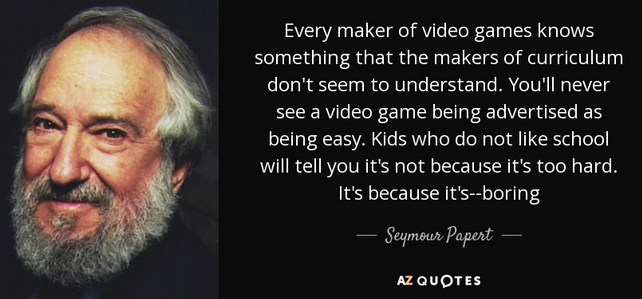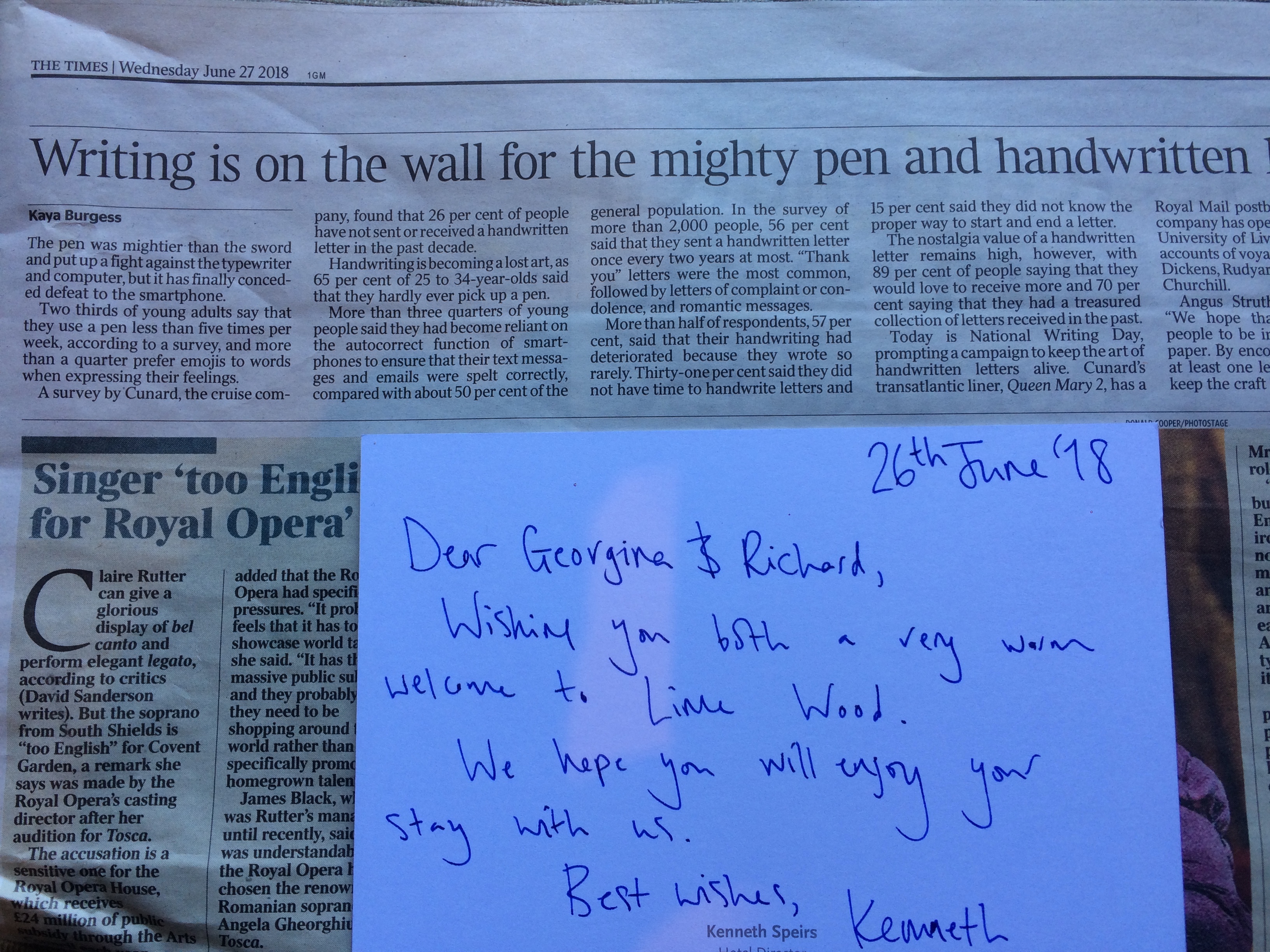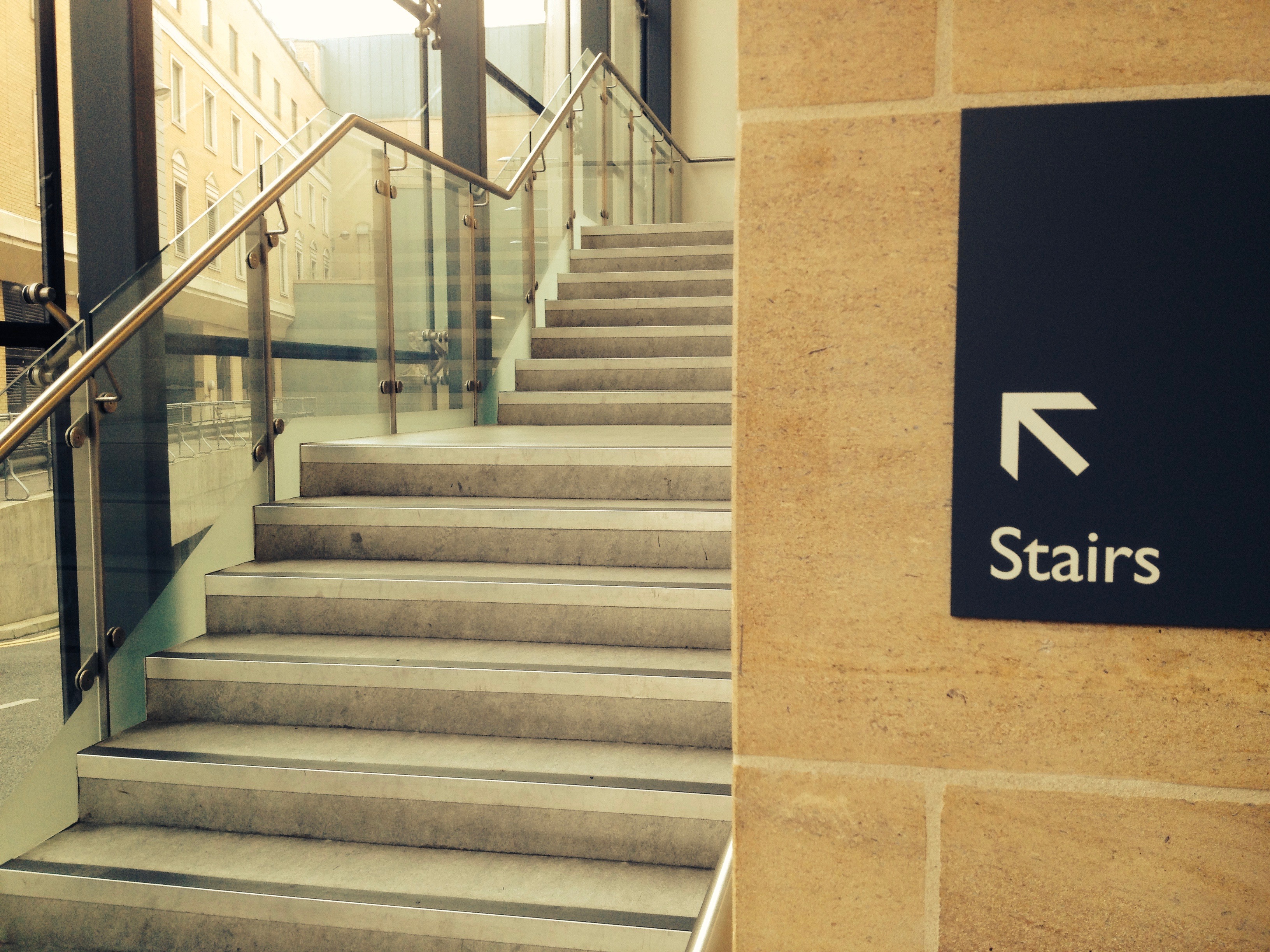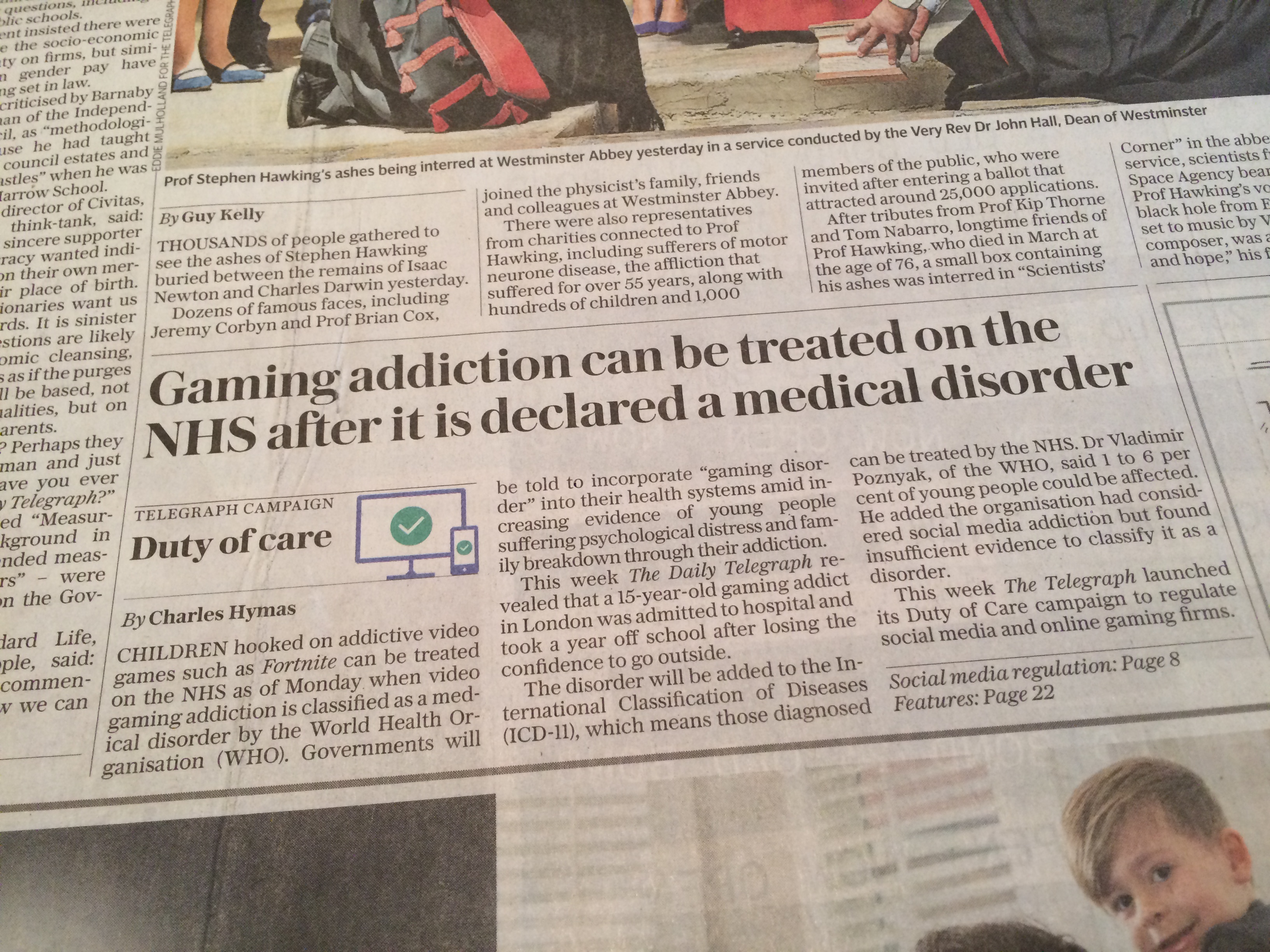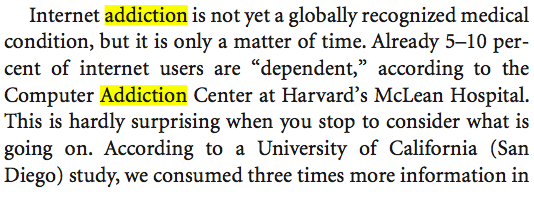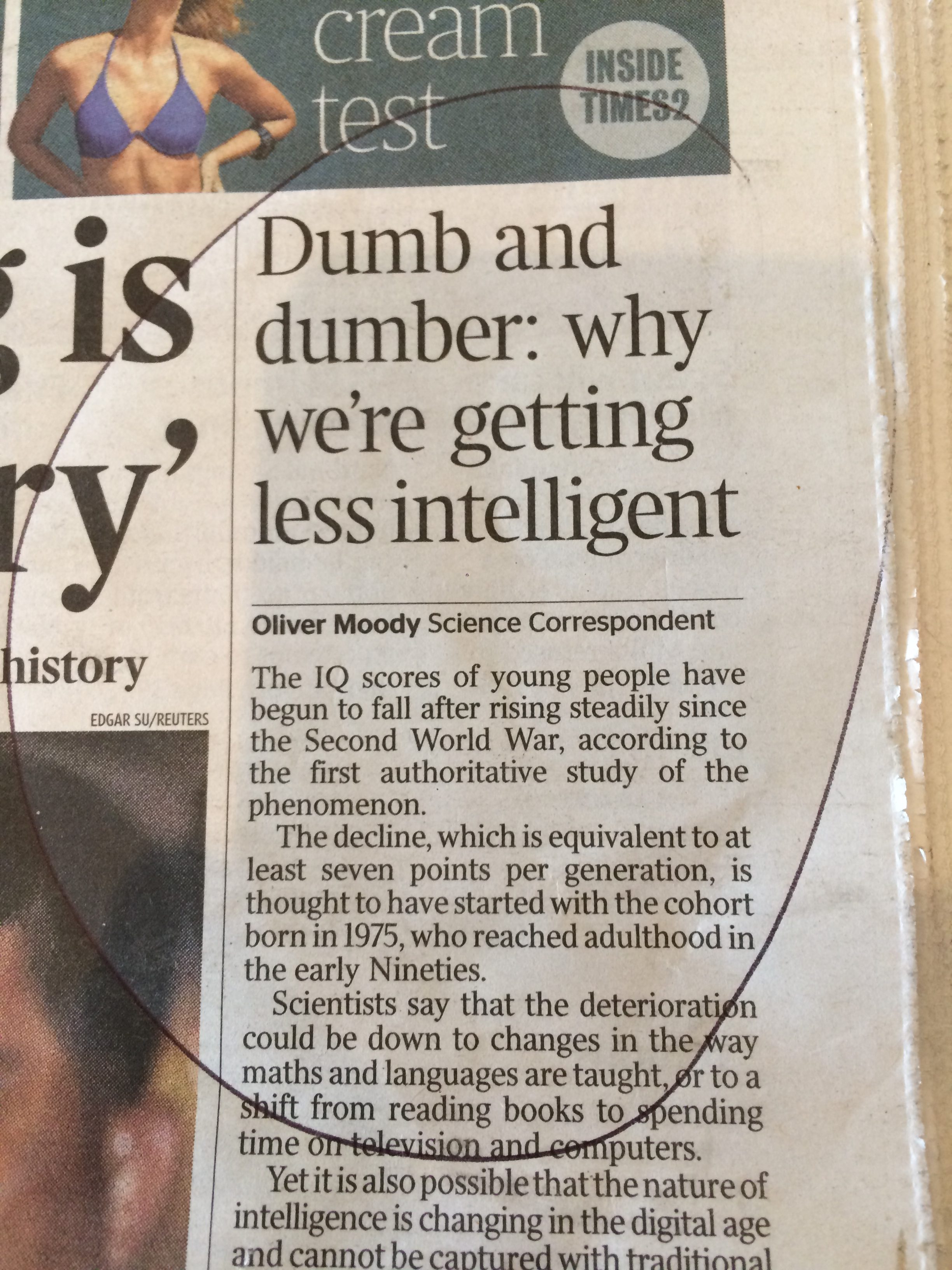Monthly Archives: June 2018
It ‘aint over ’till it’s over
Funny to see an article about the death of hand-written notes the day before I get one. What people fail to see, I think, is that the future is rarely binary. Just because one thing gets invented doesn’t mean that something else always has to die (think of e-books and music streaming).
Moreover, there are feedback loops to consider (feedback in the system) and the often forgotten truism that scarcity creates value. If hardly anyone is writing handwritten notes they become hugely impactful and people might start using them again.
The book that never was
Not all of my books make it. This is the introduction from a book that’s been junked….
Introduction
“The other day I was thinking, “I just over think things.” And then I thought. “Do I though?” – Demetri Martin, Comedian.
This book is a gentle plea for more thinking. Specifically, it’s an appeal for a calmer, slower, deeper, more reflective, more deliberate and longer-term mind-set in everything from business and politics to holidays and household chores.
I initially thought of calling this book How to Think, but then I instinctively thought that perhaps people don’t want to be told how to think. Surely thinking is an instinctive skill that doesn’t need thinking about. But is this true? Have you ever thought about this?
We aren’t generally taught how to think at school and we don’t think deeply about our thinking very much thereafter. This is a great shame, because our thinking, and especially our imagination, is perhaps the most precious natural resource we’ve got on earth. But it’s being polluted by everything from endless streams of interruption to the unsustainable demands of narrow and numerically-based financial markets. Our liberty to think openly and freely is also being eroded, both by universities supporting ‘no platform’ policies and by the visceral hatred endemic in much of our polarising political culture.
This hasn’t always been the case, and it’s not true everywhere either. But our fixation with doing everything as quickly as possible is making us, our institutions and society infirm. Even weekends and holidays, which were once times for relaxation and reflection, have been invaded by digital devices that demand our constant attention and disconnect us from our true selves. I might be wrong, but the collateral damage of our hyper-connected world might be people that are less connected, both to themselves, and the wider world around them. Our mental focus, like our education systems, is shrinking when it should be expanding. We need to bring back breadth, depth, lifelong wonder and curiosity.
There have been a number of books about the neuroscience of thinking, especially how our sly subconscious gets us into so much trouble. We are surrounded by the debris of this on a daily basis. We rush into roles, responsibilities and relationships without properly thinking, or we think about things in a singular, linear and unconnected manner. We ignore the layered lessons of history, the cyclical nature fashion and the counter-forces that often emerge in response to any significant innovation or event.
Books about creativity and innovation abound too, but these tend to exist within a sterile vacuum divorced from real world pressures, organisational psychologies and institutional pathologies. Have you tried really thinking at work? Without permission? For a whole day? Without getting reprimanded? Or what of the impact of mood on thinking? Why don’t we think about this more often? Why are we so careless with the physical environments in which we expect our co-workers to think and our children to learn? Why is our obsession with external architecture so often to the exclusion of the other sensory elements, for example the architecture of touch, sound and smell?
On all counts, the result is thinking that’s becoming increasingly timid, lazy, sterile and one-dimensional, which is making us open to unmanageable surprises.
I would like to address all these issues and more, but from a positive perspective. I am less concerned about why things go wrong and more interested in how to put them right. How can we manipulate our meddlesome minds to make them more attuned to emerging opportunities and risks? How can we become more sensitive to the faint murmurs that are so often the forerunners of change? How should we embolden individuals and organisations alike to filter out utter nonsense, spot valuable anomalies or realise the significance of an overheard anecdote? How, for instance, might an organisation use smell to increase productivity?
Most importantly, we are possibly on the cusp of a radical revolution in artificial intelligence and advanced machine learning. How might we educate our minds – and those of our children and our children’s children – to be open, adaptive and resilient in disruptive environments? How should we think when machines can do this for us? How can we ensure that one of the major consequences of machines that can think isn’t people that don’t or needn’t? How do we guard against a situation where human complacency or disenfranchisement means we no longer ask questions like these?
I think the answer to this is to become very good at the things these machines are very bad at. In short, we must work tirelessly to unleash our unique ability to think imaginatively, ethically and empathetically and inspire others to do the same. And to do all this, and much more besides, I believe we need a moderate level of disconnection and a significant amount of time. Without this no stable sense of self can emerge. Only when we are firmly anchored in ourselves can we hold conversations from which new ideas and insights will emerge. Only when we achieve a graceful, joyous, lightness of being can we float above our everyday existence and correctly perceive, and solve, the global challenges that lie ahead.
We cannot construct a long-term strategy for human accomplishment, let alone one for the survival of our species, when we are smothered by busyness, distracted by ephemera or constantly running to keep up with the accelerated present.
Sit down, turn off your phone, switch on your attention and come with me for a gentle stroll down some hidden paths of perception and possibility.
Stupid Britain
Human Stupidity
Thinking too far ahead
One thing I have learned over the past 14 years is that you can be right about something and nobody listens. It’s all about timing and whom people listen to.You can be too early with an observation or prediction much as you can with an idea or invention.
I saw this (above) in the newspapers a few days ago. I was thinking about this as a major issue 8 years ago (in fact my book Future Minds from 2010 was about little else other than screen addiction and the insidious nature of Facebook, Twitter et al).
OK, so what am I thinking about now in 2018 that is still widely undiscussed or unreported? It’s a very long list. In my last book from 2017 I was focussed on mental health and stated that loneliness could well be the defining issue of the twenty first century. I’d say this is still true. I also say that sleep will emerge as both a huge risk and opportunity and that anxiety will underpin almost everything. Apart from that there are the issues of water and an emergent new puritanical mindset that is totally at odds with our extreme liberalism. Calm the future isn’t as Yoda might say.
Are we getting more stupid?
This in today’s newpapers (not the semi-naked torso, the article on IQs, although maybe there’s a link there). I know I’m supposed to only read the old news, but sometimes something creeps in to view. Reminds me of my Mega-trends and Technologies roadmap, that had decline of human intelligence as a global risk under Trump being elected US President.
Also reminds me of the passage below from Digital Vs. Human (chapter on media).
Aren’t we getting smarter?
We know human intelligence has been increasing, thanks largely to higher standards of public health, public education, and social support. In Denmark, a standard IQ test, used from the 1950s to the 1980s to assess the intelligence of potential military recruits, clearly shows IQ levels have risen. Other data confirm this effect. However, since 1998, something strange has been observed in developed countries such as Denmark, the UK, and Australia. IQ levels haven’t just levelled off — they are actually declining.
Evidence to date is thin. It’s possibly a blip. But it could be real and caused by cultural or even nutritional factors. An artificial diet of processed foods, the gluttonous consumption of television and computers, or a dubious banquet of educational reforms might not be helping. One might even argue that humans are reaching the limit of natural genetic gains, much as human height has now plateaued.
A controversial view is that since the most intelligent people tend to have the least children, we might be slowly breeding out intelligence and, as a species, evolving to be more stupid. This could be true, but we’ve had these arguments before, and the outcome last time (eugenics and forced sterilisation) wasn’t pleasant. Perhaps, as a species, we are still becoming more intelligent, only in ways that traditional IQ tests don’t measure — or ignore completely.
So what’s next? Given our limited understanding of the genetic basis of intelligence, it will be a long time before we can tell what is going on, and probably longer before we hack our own genes to improve our intelligence. In the meantime, there’s a straightforward solution: better education.

